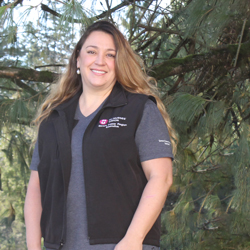 Residents And Staff Deserve Better
Residents And Staff Deserve Better

Seniors Advocate calls for increased staffing and sick leave in long-term care
Since the COVID-19 pandemic began, health-care workers in BC's long-term care sector have been hit especially hard by the effects of the public health crisis. Approximately 80 percent of deaths due to COVID-19 have taken place in long-term care facilities. This represents a devastating loss for the staff and families of seniors lost to the virus.
The BC Nurses' Union has been calling for a major overhaul of the province's long-term care sector long before the COVID-19 pandemic began. From crippling staffing shortages, unsustainable workloads to rising resident acuity in overcrowded facilities in need of repair, the pandemic has only compounded the challenges facing the sector.
Many of BCNU's concerns have now been echoed by BC Seniors Advocate Isobel Mackenzie in her most recent report, entitled Review of COVID-19 Outbreaks in Care Homes in British Columbia.
Released in October, the report outlines the results of a province-wide review of COVID-19 outbreaks in long-term care and assisted living sites during the first year of the pandemic. That review looked at factors that can influence the probability that a site will experience a COVID-19 outbreak and the factors that can minimize the number of staff and residents who become infected when a COVID-19 outbreak occurs.
Michelle Sordal is BCNU's executive councillor for pensions and seniors' health. She also chairs BCNU's Seniors' Strategy Working Group. Sordal welcomes Mackenzie's recommendations, especially the call for increased paid sick leave for staff, the increase in the pool of direct care staff and corresponding decrease in the contracting of direct care staff hired through agencies.
Sordal says she and representatives of other health-care unions met with Mackenzie early on to collaborate with the Office of Seniors Advocate and ensure that as many BCNU members as possible participated in the surveys that informed the report.
"BCNU is also open to collaborating with the seniors' advocate on future initiatives," she says. "Meanwhile, the union's Seniors' Strategy Working Group is using some of the recommendations in the report to inform our position on long-term care reforms in the province."
Mackenzie's review included feedback from over 6,500 staff who reported being concerned about infecting residents and their own family members. They also reported that their overall health and well-being was compromised by the experience of working through the pandemic.
Sordal says the union is especially troubled by review findings that show overtime in the long-term care sector increased by 63 percent overall, with overtime at sites that experienced a large outbreak increasing by 178 percent.
"That's a total of 2.3 million hours of overtime that was delivered during the pandemic's first year," she remarks. "It's a number that's unsustainable and only guaranteed to worsen the staffing retention problems that plague the sector."
According to the review, site operators also experienced significant increases in workloads related to managing staff, families of residents, supplies and health authority officials.
The review also analyzed what factors were more common in larger outbreaks and found sites that provided fewer days of paid sick leave were more likely to experience a larger outbreak. While almost all sites provide paid sick leave to staff, the number of days ranged from 2.5 to 18 days per year.
Unsurprisingly, the review also found that sites with lower levels of registered nurses as a proportion of the direct care hours were more likely to experience large outbreaks.
"The union is using some of the recommendations in the report to inform our position on long-term care reforms."
Ann Marie Charbonneau is a BCNU worksite steward at New Westminster's Queen's Park Care Centre, a facility that provides both long-term care and rehabilitative services. She also serves as steward liaison on the BCNU Simon Fraser region executive. In this role, Charbonneau helps mentor and support her region's stewards and steward teams, especially those who work at the small and independent affiliated sites, many of which were hardest hit when the pandemic struck.
Charbonneau has experienced first hand many of the staffing challenges that were identified in the report.
She says many of those challenges were triggered following the province's April 2020 single-site order, which required long-term care, assisted living, and provincial mental health facilities to limit staff to working in only one facility as part of the COVID-19 pandemic response. The order was accompanied by a provincial labour adjustment process negotiated between the Health Employers' Association of BC and health-sector unions and issued through the Emergency Program Act.
Charbonneau says many workers who held jobs at more than one worksite had to decide where to make up their additional hours. This contributed to burnout already seen among members before the pandemic due to staffing shortages and other issues.
"We've seen a huge increase in the number of staff leaving long-term care because of chronic burnout," she reports. "A lot of nurses are retiring from long-term care because they just can't do it anymore. Vacancies are now left unfilled and employers are having a hard time staffing positions at those sites."
Charbonneau says long-term care members in her region have faced a host of other issues, including shortages of personal protective equipment (PPE), employers not reporting outbreaks at Joint Occupational Health and Safety (JOHSC) meetings, and continuously changing mandates and policies, such as testing going from being at work to becoming the staff's responsibility.

BCNU Simon Fraser region steward liaison Ann Marie Charbonneau works at New Westminster's Queen's Park Care Centre. She has experienced first hand many of the staffing challenges that were identified in the latest report from BC Seniors Advocate Isobel Mackenzie.
At smaller, for-profit sites, she reports that some staff members were discouraged from reporting COVID-19 to WorkSafeBC, which reduced the amount of sick time they could claim.
Charbonneau says the pandemic is a stark reminder that safe staffing and safe patient care go hand-in-hand.
"As union representatives, we have tough conversations around COVID-19 because, inevitably, we aren't just protecting our members, we are ensuring that employers prevent further transmission and spread to the residents, patients and clients that members are caring for," she explains.
Today, nurses continue to deal with staffing shortages as the COVID-19 pandemic wears on. Patients and residents in long-term care have also struggled with isolation during the pandemic, with families unable to visit and activities being cancelled.
While the pandemic has highlighted the hardships throughout sector, anyone working in long-term care will tell you they were already dealing with staffing shortages and more before COVID-19 became a reality.
"You were lucky if you could give the level of care you gave before the pandemic. Now, you don't even have the time to provide psychological support to the residents," remarks Charbonneau.
She agrees with all of the recommendations in Mackenzie's report but believes more attention should be paid to actions of employers, especially those running private long-term care facilities which saw the worst of the pandemic.
"Employers and unions need to be working together to remind staff of how to report unsafe working conditions to ensure staff concerns are resolved in a timely matter."
Charbonneau also stresses the importance of care aides who provide direct patient care. "It comes down to the number of people available – we're always short-staffed," reports Charbonneau. "The more hands you have available, the better quality of care you can provide."
"It comes down to the number of people available – we're always short-staffed."
BCNU North West region council member Teri Forster was one of the 6,500 nurses who took part in the report, as she worked in a long-term care facility due to staffing shortages during two outbreaks.
She says the union is standing with members to advocate for change.
"We are doing more and more education to help nurses in long-term care to be able to use their voice to fight for their rights as well as the rights of their residents to ensure they are getting the best care possible," says Forster.
She believes members working in long-term care are a key part of the bigger movement for safe patient care, but reports that these individuals aren't attending regional meetings in the same numbers as members who work in the community or acute care.
That comes as no surprise given the limits that working conditions have put on these nurses' time. In response, Forster says the union has been holding meetings on-line via Zoom and organizing department-specific meetings to give members more time to discuss issues specific to their area of work.
The union also continues to call for nationally coordinated action on seniors' care.
Canada's population is rapidly aging. The country's senior population – those aged 65 or older – is expected to climb to 10 million by 2037, an increase of 68 percent.
There are growing calls for governments to acknowledge the increasing demands on long-term care facilities and other areas of the health-care system that are feeling the pressure.
BCNU has been raising awareness among policy makers and the public about the importance of investing in senior's care now and into the future. The challenging conditions in most of the province's long-term care facilities outlined in Mackenzie's report are just one more indication of the need to do better and ensure that seniors get the care they deserve.
As part of this work, BCNU supports a coalition of organizations across Canada to promote national standards for long-term care and the phasing out of for-profit long-term care. The coalition includes unions and health organizations that have been lobbying Ottawa to enact new legislation setting federal long-term care standards linked to government funding.
Sordal says BCNU's Seniors' Strategy Working Group and this coalition are both doing important work that can push all levels of government to address the needs and concerns of seniors in BC and across Canada.
"The country's rapidly aging population needs more attention from government and BCNU will continue to work to support the reforms that seniors in long-term care so desperately need." •
UPDATE (Winter 2021)

